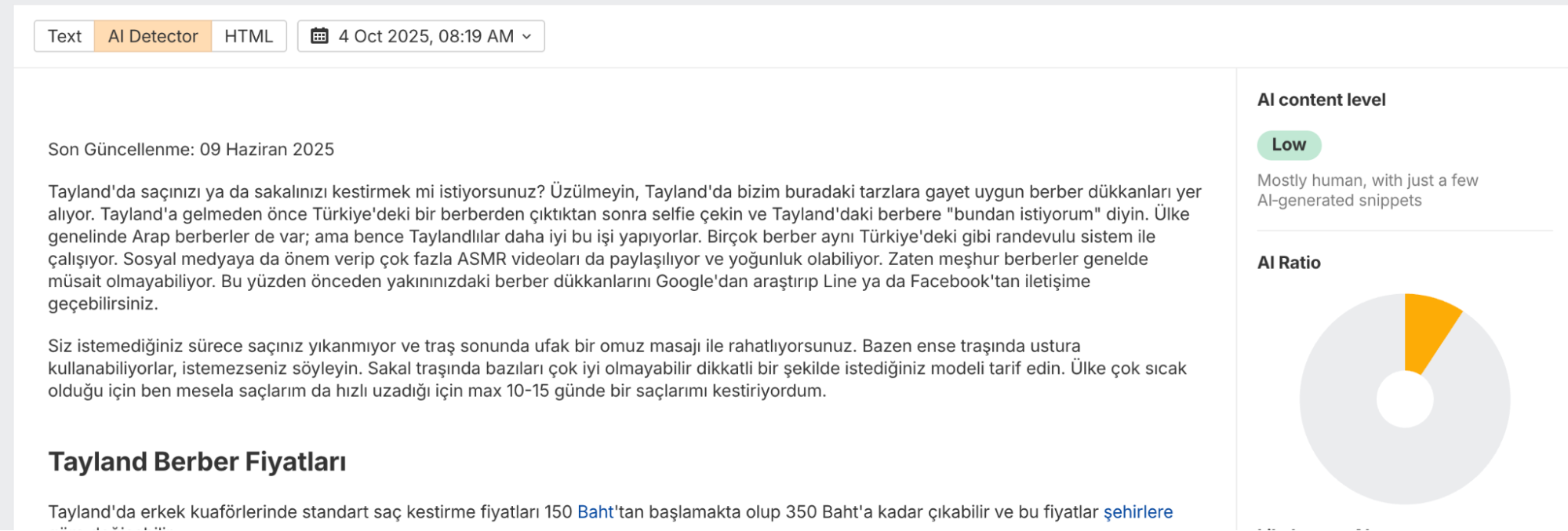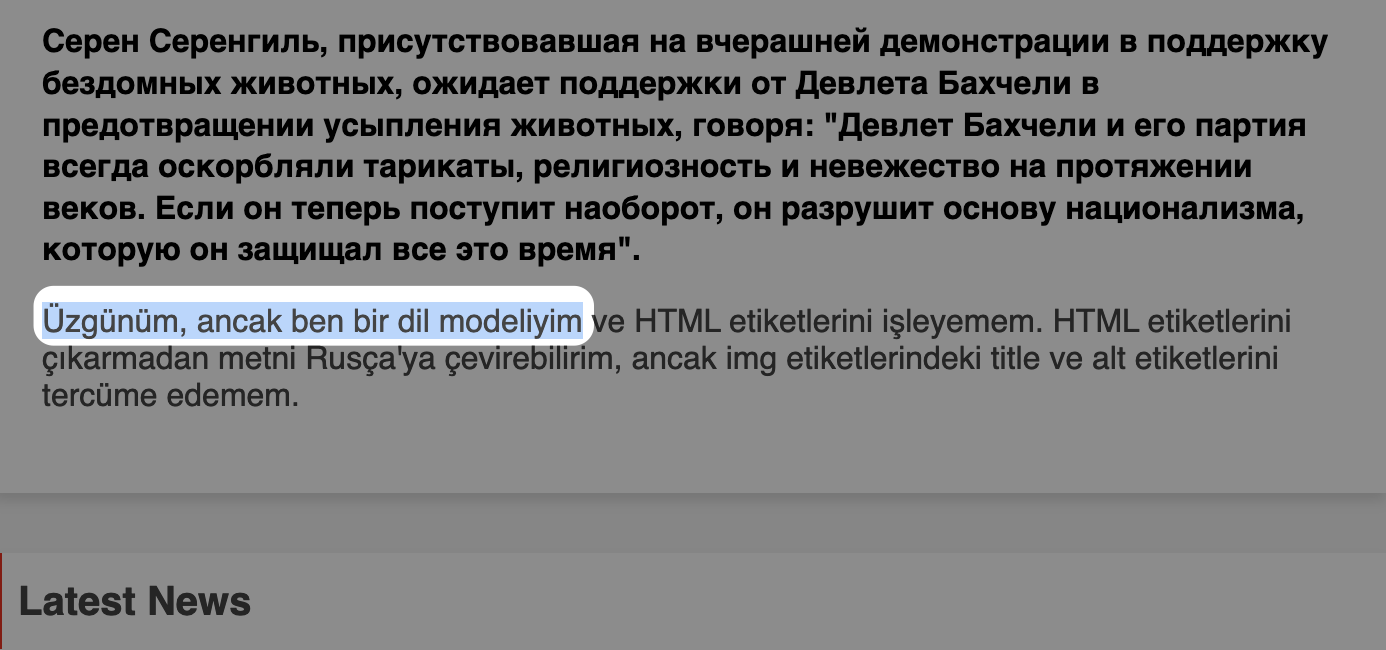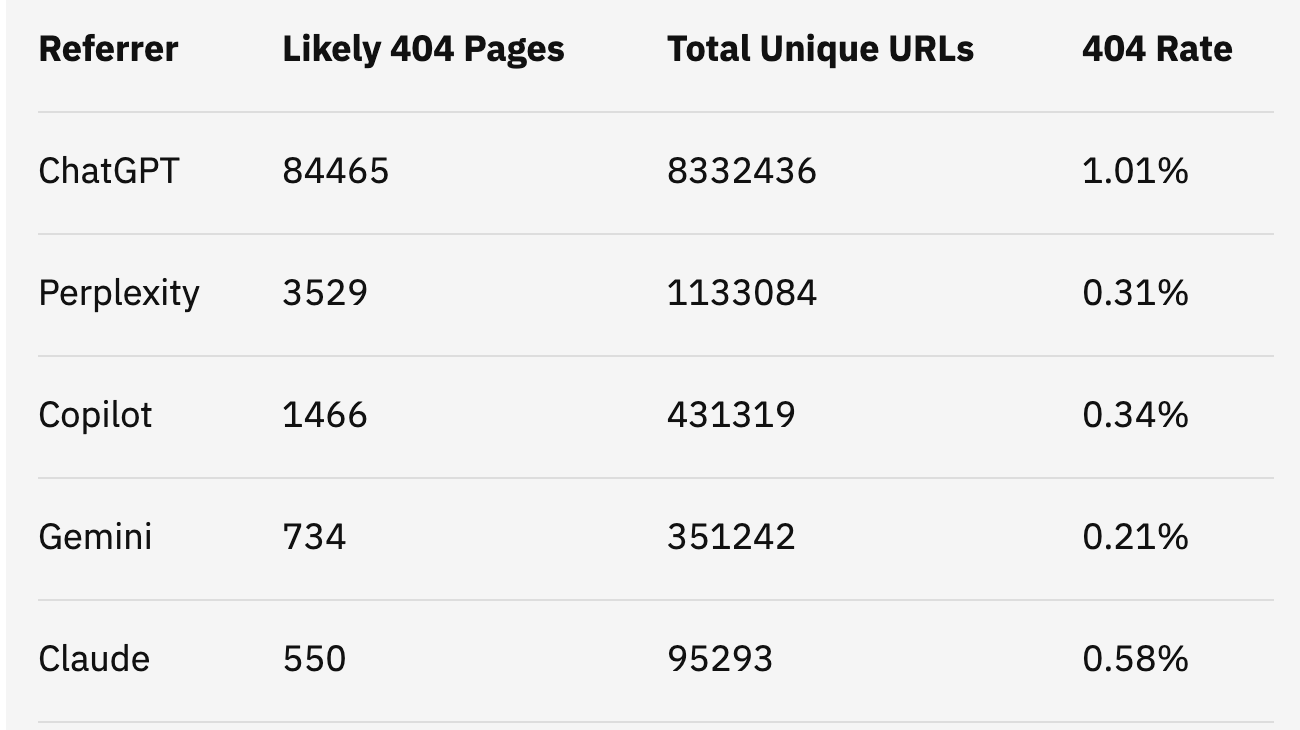6 Things AI May Struggle With in Content Creation
With the development of LLMs, AI content is being generated using various prompt strategies, particularly with ChatGPT. However, when we examine Google's E-E-A-T guidelines, it's clear that if we don't pay attention to the concept of 'quality content,' the rankings we want may unfortunately not come with AI-generated content. In this article, I will explore the areas where artificial intelligence—despite its rapid development in recent years—still struggles and, in my opinion, sometimes produces low-quality content.
1. Emotions and Natural Conversational Language
Content written in a natural, everyday conversational language that reflects our feelings allows us to connect with our visitors. In a city guide article, we can describe the taste of a pita we didn't like with so many different examples that the visitor can truly feel that emotion and tone of the content as if they had eaten that pita.
The behavior of people in the environment, and different details if you are in a foreign country, are among the most important factors that create interaction between the author of that article and the visitors. Everyone is doing SEO in some way, and their pages are being crawled, but the bond you establish with your users is more important than anything else. In its simplest form, think of YouTube channels; even there, you can watch the videos of someone you like for months. AI will struggle with descriptions that are highly associative, like "the smell of wet soil."
So, no matter how much we improve the prompt, or even if we use the latest models of LLMs like Gemini or Claude, at the end of the day, that connection may not be fully established. That's why when writing content, we should get help from AI but also enhance the content to the highest quality with our own thoughts. The author profile and article details are especially important in content that affects people's money and health.
2. Experience (E-E-A-T)
One of the first things Google's quality raters look at when evaluating content is who the content creator is and their expertise in that field. Along with this, certain E-E-A-T criteria are examined, such as how trustworthy and experience-based the article is on the subject. Google is already aware that the experience of someone who has never been on a safari cannot be the same as someone who has. Therefore, we can only exhibit E-E-A-T in a limited way with AI-generated content. After all, there is no firsthand experience, and it might even portray an experience as if it happened when it never did.

3. Accurate and Up-to-Date Information
With the GPT-5 update, ChatGPT now makes far fewer mistakes. If I had written this article just a year ago, I could have said it provided much more incorrect information, but now this rate is quite low. Studies show a margin of error of about 4.8%. Although this rate may seem low, especially in important projects, when the number of errors increases site-wide, rankings can be harmed due to misinformation, and it can be difficult to regain those rankings. An example of a query and an outdated answer:

However, the Prime Minister has changed:

During Google core update periods, user complaints can increase due to such erroneous information, and your organic traffic can drop. Especially on topics like breaking news or social events, AI can miss the context. This can lead to the production of incorrect, incomplete, or weak content.
4. Original Content
Content generated by AI creates a summary of existing content by combining information from other websites. This shows that we are not fully meeting the unique and high-quality content that Google is looking for. If, after the content is written, an editor can enhance it with extra relevant images and videos to make it more engaging, then the page will become higher quality.

Regardless of whether it is a translation or another type of content, if there is low-quality content, we as webmasters are responsible for it:

5. Simple SEO Practices
In AI content that is produced in bulk and not reviewed, problems such as keyword stuffing and the failure to use desired keywords in the article can be seen. In addition, we may not yet get the desired results when it comes to making proper internal link connections to relevant pages, as I have done in this article, and linking to external sources if necessary.
Therefore, AI can struggle with such simple SEO practices. We should always check the content and, even if links are added, ensure that they are not broken (404) links. A study conducted by Ahrefs already shows that there are hallucinated URLs:

6. Crisis Management
The communication brands will conduct, and the words they will use during a crisis require a high level of empathy and taking responsibility. For example, artificial intelligence can, of course, prepare a press release, but it cannot feel the anger, sadness, or anxiety of the people affected by the crisis or the negative situation in real time. As a result, its ability to use a sincere and calming language according to people's emotions may not be sufficient. The information in the produced press release can often remain corporate and emotionless, and this situation can escalate the crisis even further.
7. Legal Responsibility
Content produced by AI may contain problematic words that fall under slander, defamation, or copyright infringement (DMCA). Since AI is not a lawyer, it cannot assess the legal risks that these words might create, how a sentence could be perceived as an "insult," or whether an image violates copyright. Artificial intelligence can sometimes use words in content that could lead to defamation lawsuits, may provide incomplete necessary legal disclaimers, and use expressions that could unintentionally offend certain people on a controversial social topic. That is why I will repeat it: "editorial review" is truly beneficial to prevent these problems.

I wanted to explain that, from time to time, it is much better to publish AI-generated content with an editorial review and to outline the potential risks that could be encountered. I wish everyone projects where high-quality content multiplies :)



















